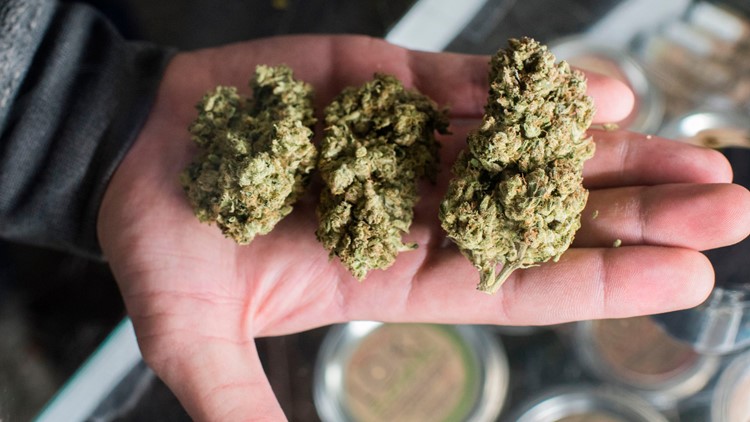BOISE, Idaho — The Idaho attorney general's office has completed reviews of proposed minimum wage and medical marijuana initiatives intended for the state ballot in the November 2020 general election.
The minimum wage initiative would increase Idaho's current $7.25 per hour to $8.75 on June 1, 2021; to $9.75 a year later; to $10.75 a year after that; and to $12 an hour on June 1, 2024, The Idaho Press-Tribune reported Monday.
Thereafter, it would require Idaho's minimum wage to be indexed to the consumer price index, and rise when the cost of living rises.
The measure also would eliminate a current "training wage" for people younger than 20 during their first 90 days of employment, which is now $4.25 per hour; and raise the minimum for tipped employees. One version of the initiative also would expressly allow Idaho cities and counties to set higher minimum wages than the state wage; another version leaves that provision out.
As for the proposed medical marijuana initiative, the office said because it seeks to both set up a system of legal medical marijuana, and to legalize industrial hemp, it likely would violate the state constitution's existing single-subject rule for ballot initiatives.
Deputy Attorney General John McKinney also raised concerns over numerous provisions in the initiative, which he said could be challenged as unconstitutionally vague; and noted that even if Idaho were to legalize medical marijuana, it would remain illegal under federal law.
The medical marijuana initiative would decriminalize under state law the possession of up to 4 ounces (about 113 grams) of marijuana for registered patients with a specified "debilitating medical condition," from cancer to chronic pain. It also would protect medical marijuana production facilities and medical marijuana dispensaries from civil forfeitures and penalties under state law, and make it illegal to discriminate against registered medical marijuana users in education, housing or employment.
Sponsors of both measures didn't respond to requests for comment Monday from The Idaho Press-Tribune.
For either of the measures to make the 2020 Idaho ballot, its backers would need to collect signatures of 50,365 registered voters, including 6% of the registered voters in at least 18 of Idaho's 35 legislative districts, according to the secretary of state's office. The signatures would be due by April 30, 2020.



